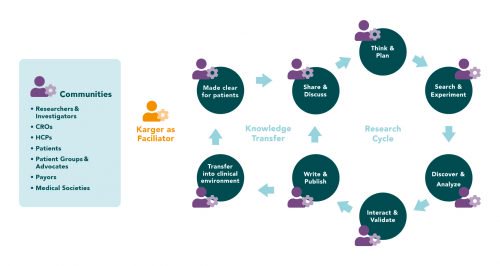Medical societies aim to advance knowledge within their area of expertise and play an integral role in transforming medical and scientific information into knowledge, ultimately helping patients.
Similar Visions, Diverse Challenges in Achieving Missions
Society members generally represent various aspects of a subject area. Whether their focus is academia, research, clinical, healthcare policy, or administration, together they connect as a network in which to exchange information. Typical missions are to inform and educate their members, and to set standards or guidelines of care in order to provide the most up-to-date disease treatment and/or management.
However, as Ben Hainsworth, Managing Director of EASL, wrote on the Boardroom: “Medical associations share many common characteristics. They typically depend on the voluntary professional activity of individuals to drive a not-for-profit business model. Their business is to represent the interests of the profession, to use collective knowledge to define standards, to define policy and to be a trusted voice for the public. Yet, beyond those similarities, medical associations are hugely diverse in terms of business model, geography, community, size and of course budget – the mix of challenges they are facing will therefore vary from group to group as well.”
Consequently, how medical societies implement their strategies to advance knowledge within their field is equally diverse, with no one-size-fits-all solution.
Leveraging Networks to Advance Knowledge
By forming partnerships with medical societies we support their contributions to helping patients. Following our vision “Advancing and Connecting Health Sciences”, we leverage our network of communities, facilitate exchanges within the Cycle of Knowledge, and provide formats to deliver information effectively in order to aid societies in achieving their strategic goals.
Society members share information with colleagues within their focus area facilitating the transfer of knowledge beyond their society, further benefitting patients.

United in the Desire to Achieve Better Outcomes for Patients
As a publisher with more than 130 years of experience, our commitment is to continue advancing knowledge by leveraging the robust network of connections we have built over the years. Furthermore, we provide formats, in addition to journals and books, to inform, educate, and communicate with our target audiences. This is how we strive to help medical societies transfer their knowledge and, more importantly, achieve better outcomes for patients.
Feel free to contact our Specialists for Society Services for more information about working with your society to connect and advance knowledge in Health Sciences. Services and cooperation models can be tailored to fit your needs.





Comments
Share your opinion with us and leave a comment below!